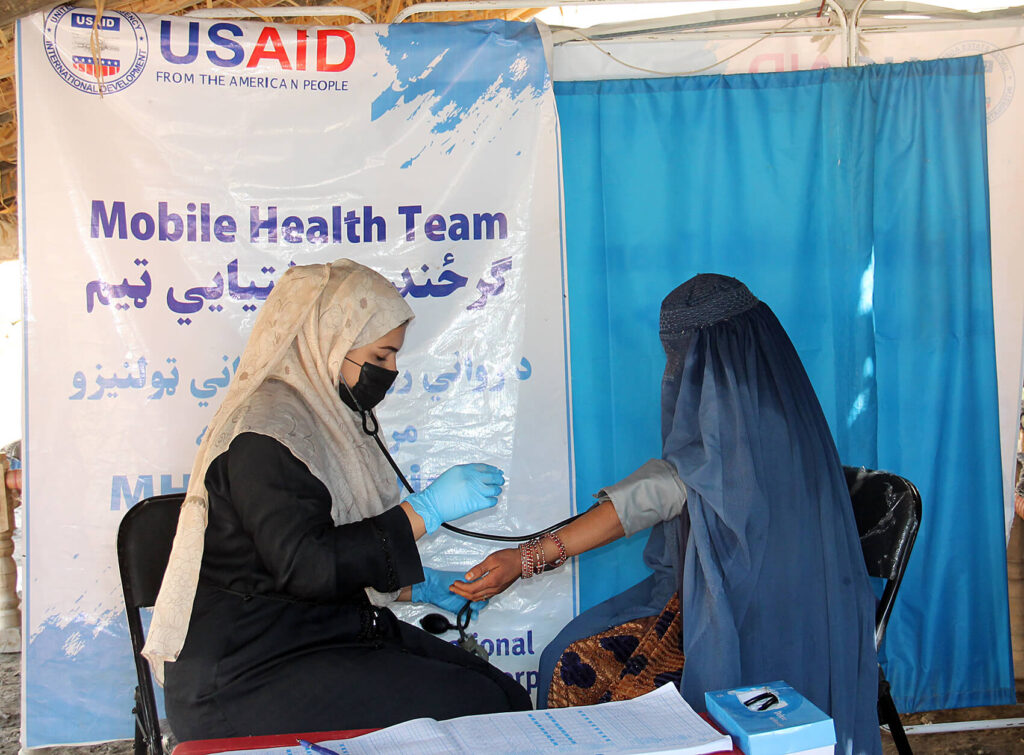Every two minutes, a woman in some part of the world dies from pregnancy or childbirth. But it does not end there. When a mother dies, her newborn child is 10 times more likely to die. Almost 99% of maternal and child deaths occur in low- and middle-income countries, with Africa being the hardest-hit continent.
A majority of these deaths are preventable. At International Medical Corps, women’s and children’s health is a key priority. We work with local health authorities and community members to improve the health of expectant mothers by offering a range of services, including antenatal and postnatal care, quality care for obstetric and newborn emergencies, family planning counseling and advice, and safe delivery by skilled birth attendants.
According to The State of the World’s Midwifery 2014 report, trained midwives can provide 87% of the essential care that new mothers and their babies need. But the same report from 2021 highlighted a global shortage of 900,000 midwives—a troubling trend. Midwives can identify complications early on in pregnancy and childbirth and, when needed, refer cases to appropriate higher-level care. Adequately trained midwives also can provide breastfeeding support and counseling on reproductive health and sexually transmitted diseases.
International Medical Corps conducts training for midwives in countries with the highest maternal mortality rates, including Afghanistan, the Central African Republic and South Sudan. Over the years, our midwives have helped save millions of lives of new mothers and delivered healthy babies.
In recognition of International Day of the Midwife (May 5), here are some stories of our dedicated midwives and how they have improved maternal and children’s health in their communities.
Afghanistan
Mursal* is a midwife with International Medical Corps’ mobile health team in Nangarhar province. She understands very well the challenges and constraints that women and girls face in Afghanistan. Despite these challenges, she advocates for and provides healthcare to women in remote communities.
“It is disheartening to learn that women and children are turned away from health facilities due to their inability to pay, and other restrictions,” Mursal says. “I am glad to support my people in such a challenging time.”
When we first established our mobile teams, women in remote areas were often reluctant to visit them. But now when the mobile teams visit a village, Mursal says that women and girls come forward to seek help with their health issues—a clear indicator that the communities and their leaders trust International Medical Corps.
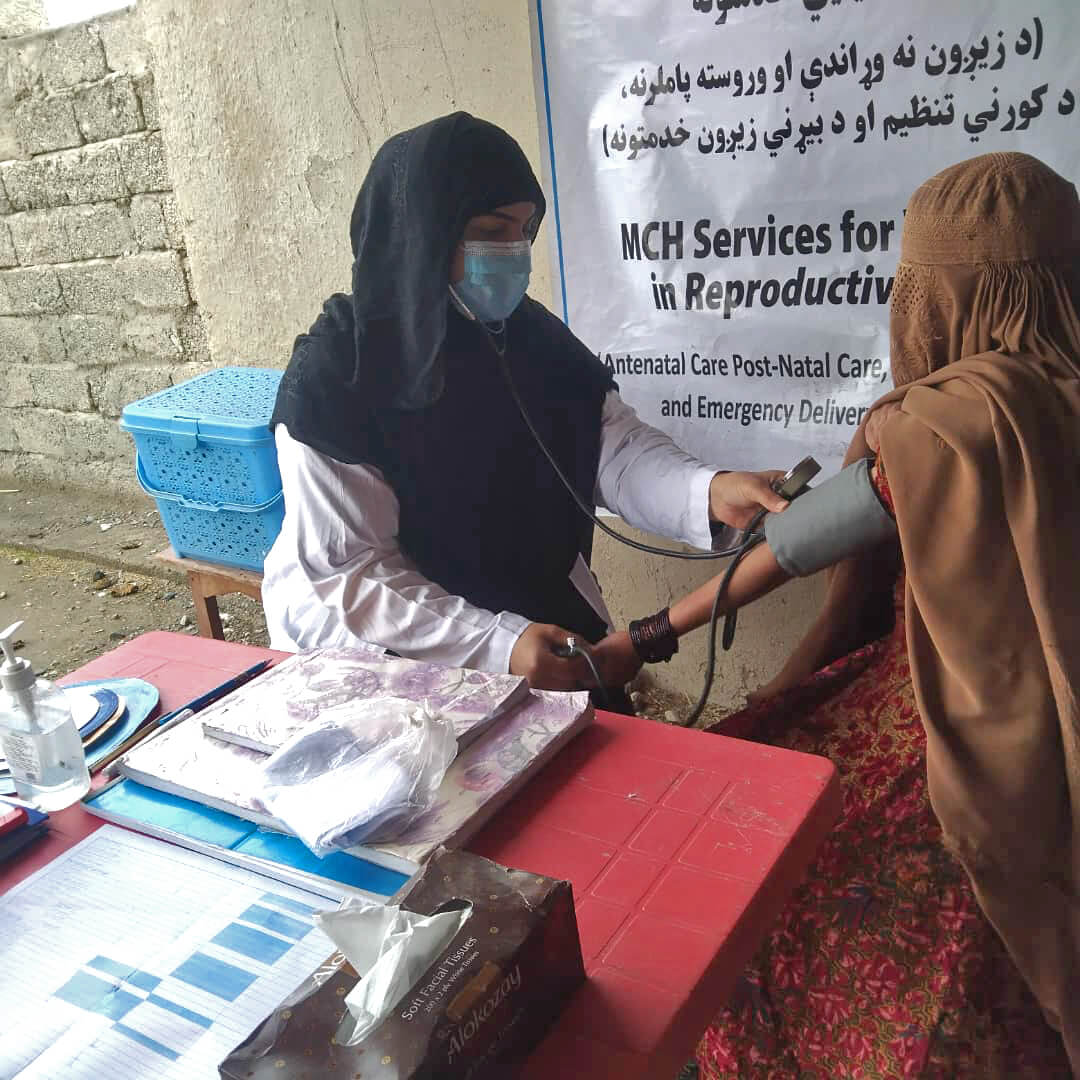
Our mobile teams offer a wide range of services, including primary healthcare, antenatal and postnatal care consultations, mental health services, vaccinations, trauma care and nutrition services.
“Working in a remote area can be challenging,” Mursal explains. “But it can also be rewarding for female health workers who are passionate about their work and find fulfillment in serving their communities. Recently, my team and I assisted a woman who delivered a baby girl in her home in Gosha district. We were all thrilled.”
International Medical Corps has one of the largest humanitarian operations in Afghanistan, and 40% of our staff are Afghan women, enabling us to deliver lifesaving healthcare to women and girls across the country.
Jordan
Basma Al Majali joined International Medical Corps’ Azraq camp hospital as a midwife in 2016. As Midwife Supervisor, she manages the shift schedules of all midwives in the camp, observes and evaluates the workflow in the hospital’s maternity department and maintains prescription records.
She recalls helping a refugee mother who was in labor and about to deliver her first baby. The mother had lost contact with her husband and other family members while migrating to Jordan, and “was terrified as she had no one to accompany her at that time,” Majali says. Seeing a pregnant woman so scared and lonely broke her heart. She did everything she could to make the young mother feel safe, explaining that she has helped hundreds of mothers deliver their babies. In the end, the young mother trusted Majali with her delivery. She gave birth to a beautiful baby girl and named her daughter Basma, after our midwife.
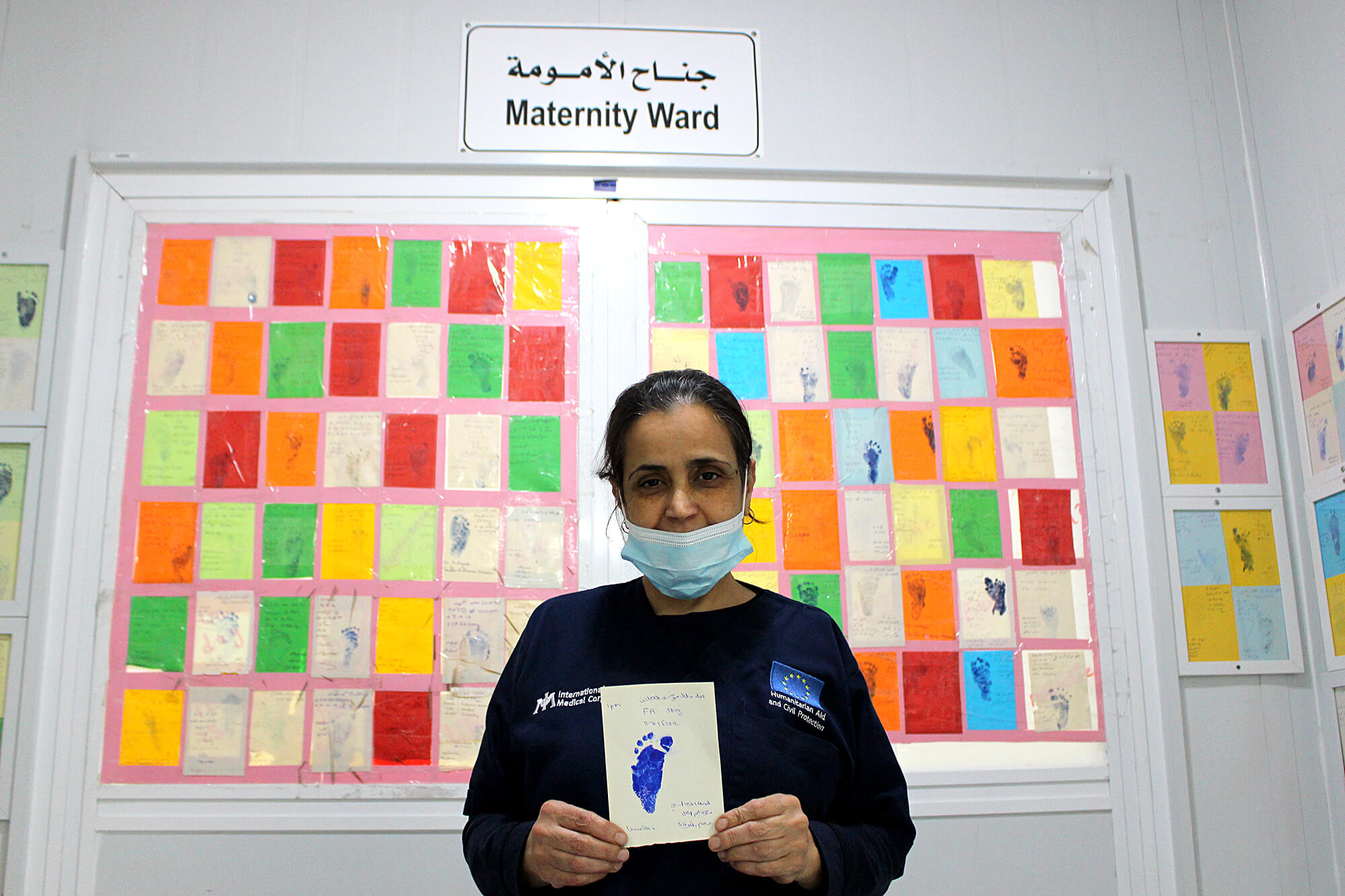
“What motivates me to be a midwife is that I can help people, no matter their background,” Majali says. “It gives me a reason to wake up every day. I consider being a midwife as an identity, more than a job.”
Sawsan Abu Albasal is another midwife at Azraq camp. She educates and supports refugee women throughout their pregnancy, helping them through labor and birthing. “Seeing the awe and wonder on the faces of new parents as they hold their child for the first time is truly amazing,” she says. “The joy, relief and sense of empowerment that comes with successfully bringing a new life into the world gives me immense satisfaction.”
South Sudan
Ngor Gach Arop is a registered midwife and Midwife Supervisor with International Medical Corps in South Sudan. He graduated from the Juba College of Nursing and Midwifery, and joined our organization in 2019. In this role, he conducts complicated deliveries, provides training to and supervises midwives and other clinical staff, manages sexual and reproductive health (SRH) activities, and completes monthly inventory and reporting at more than 20 health facilities.
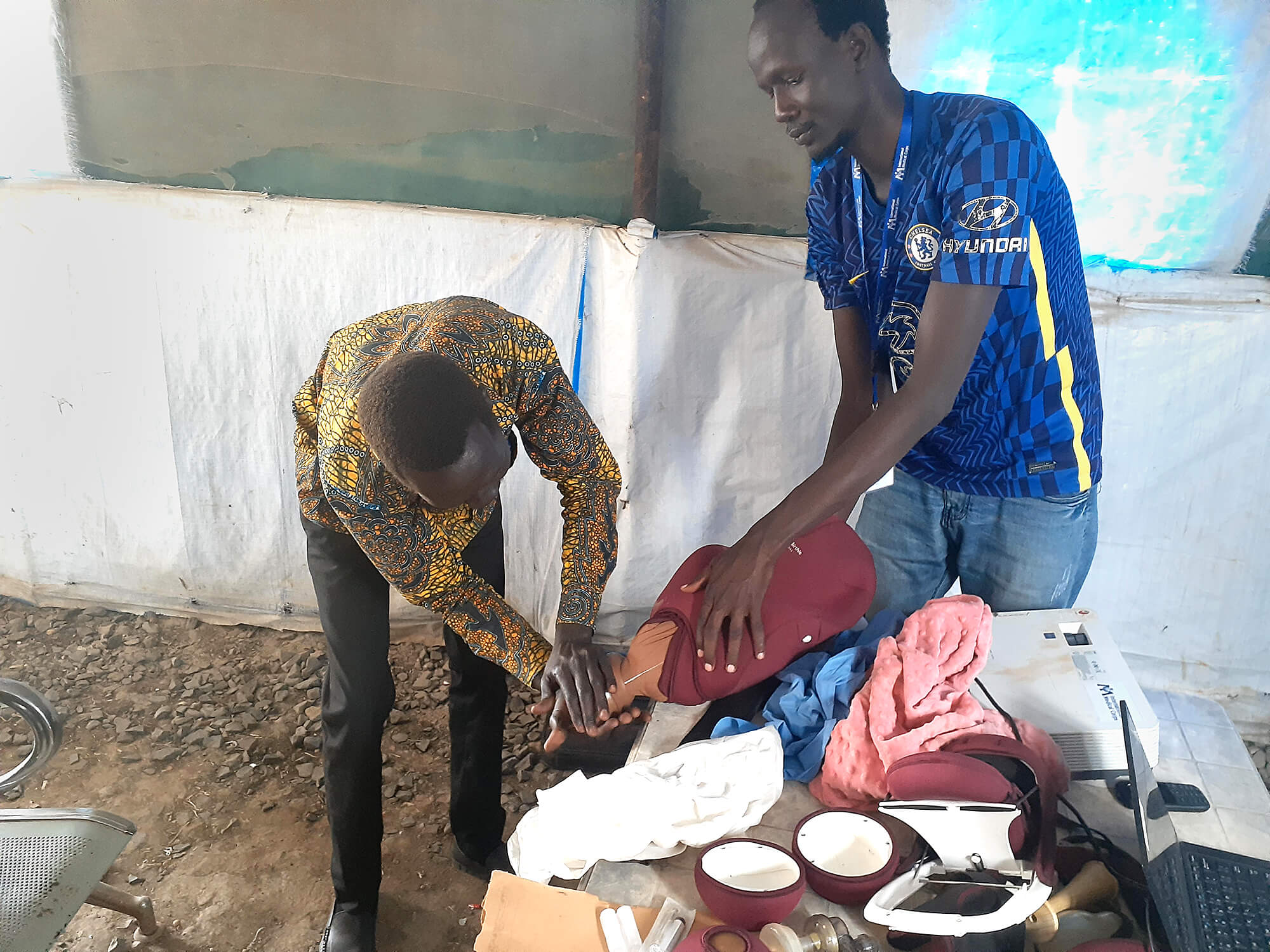
“Giving birth without the help of a trained midwife, doctor or nurse is dangerous,” Arop says. “I am proud to work for International Medical Corps in South Sudan, which has one of the highest maternal mortality rates in the world. I supervise an outstanding team of midwives who save the lives of mothers and their babies by providing prenatal care, safe deliveries and postnatal services.”
Yemen
Ebtisam Al Zaidi is a registered midwife technician at the Rababah Health Center in Yemen, supported by International Medical Corps. She manages SRH activities at the center and helps doctors conduct check-ups for pregnant women. According to her, Al Qafr district—about 190 km south of the country’s capital, Sana’a—has one of the lowest antenatal-care rates in Ibb governorate. She attributes this to the lack of qualified health workers and low family income and education.
“Lack of antenatal care is likely to delay an early detection of pregnancy-related complications, which increases the risk of maternal mortality,” Ebtisam explains. International Medical Corps provided the health center with medical equipment and supplies, medicines and furniture, and offered the clinical staff monthly incentives and training sessions. Over time, this led to better healthcare services, especially for mothers. “After International Medical Corps’ intervention, we saw an increase in the number of pregnant women who visited us for consultations and antenatal care,” Ebtisam says.
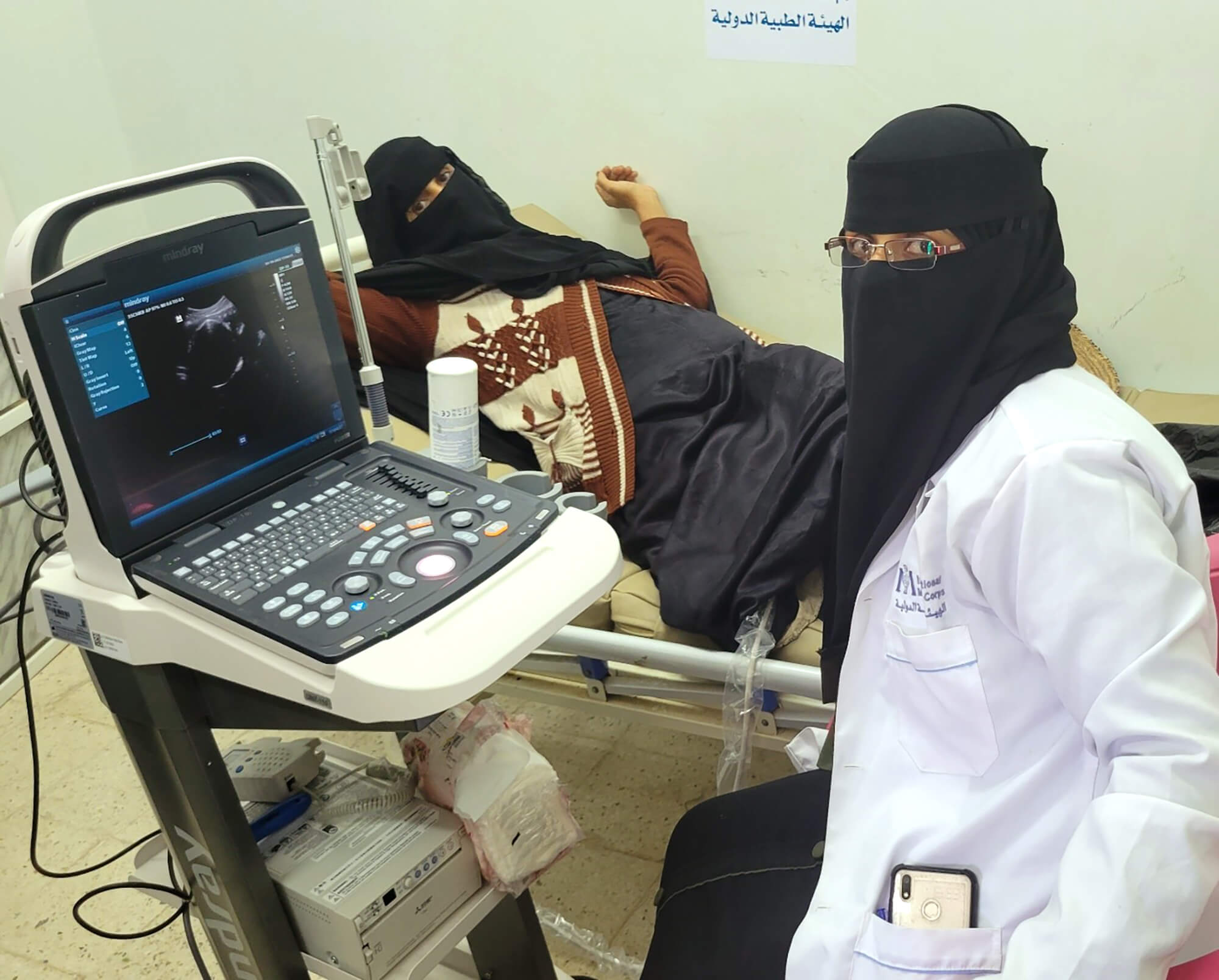
One such woman was 35-year-old Kifaya. She is a mother to 10 children, and was pregnant with her 11th child when she visited the Rababah Health Center. She had three antenatal consultations. “This is the first time I have received antenatal care,” she says.
Kifaya started bleeding in her eighth month, and Ebtisam noticed indications of pre-term labor. She immediately referred Kifaya to a specialized healthcare center, where she gave birth to a healthy girl. “We are very fortunate that International Medical Corps is supporting us to save the lives of mothers and their babies,” Ebtisam says.
*pseudonym
Learn more about our women’s and children’s program.
